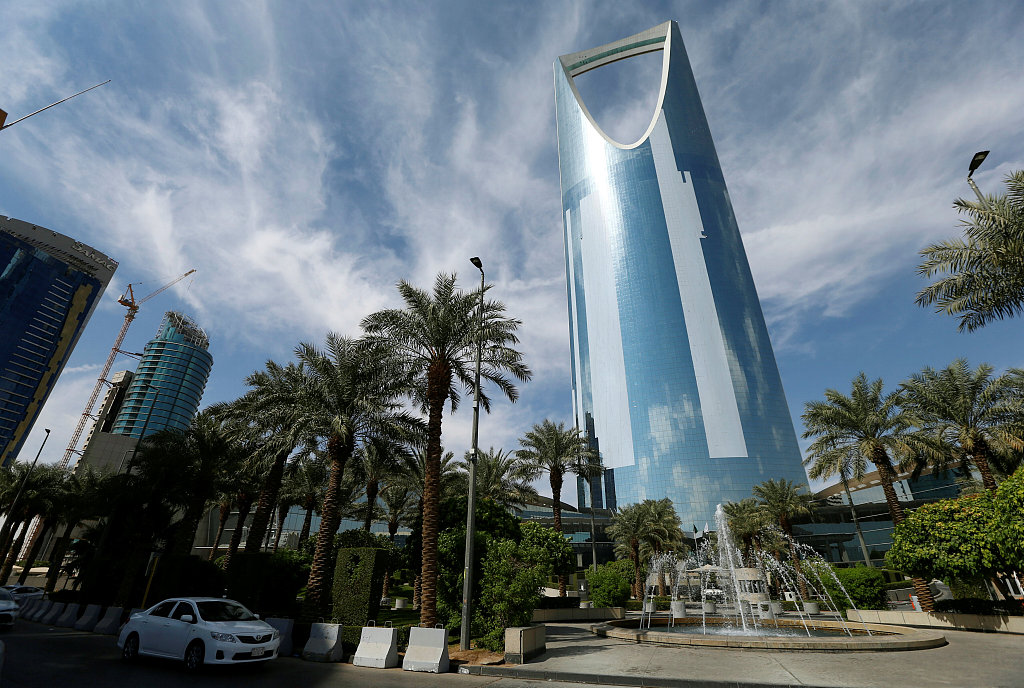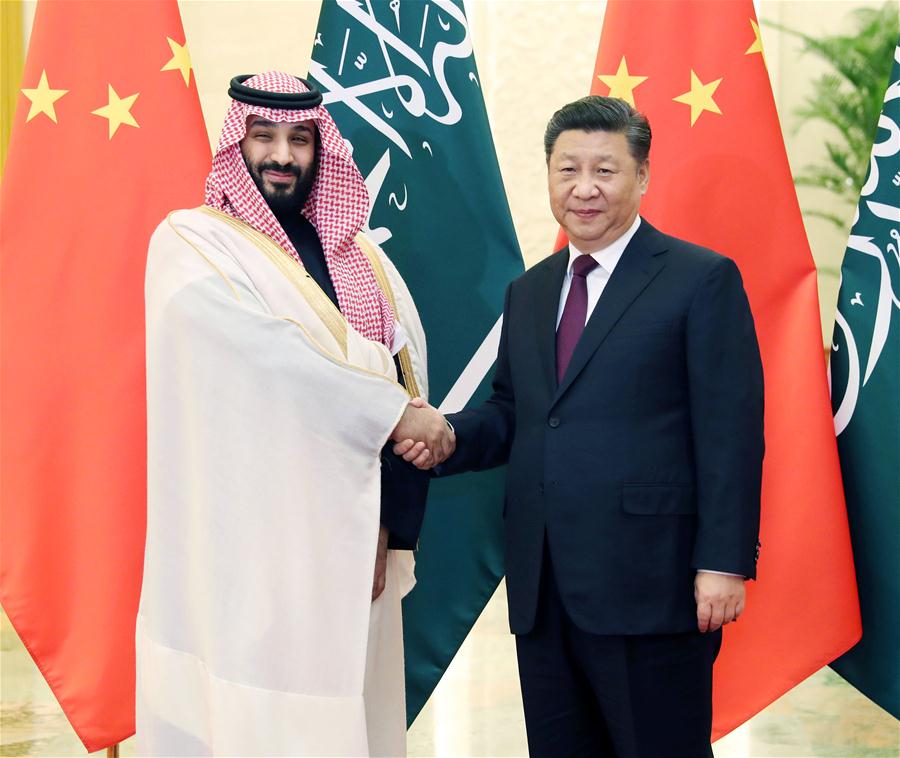Kingdom of Saudi Arabia

(Photo: VCG)
The Kingdom of Saudi Arabia is a country in Western Asia constituting the bulk of the Arabian Peninsula.
Bordered by Jordan, Iraq, Kuwait, Qatar, Bahrain, the United Arab Emirates, Oman and Yemen, Saudi Arabia is geographically the largest sovereign state in the Middle East.
Capital and largest city: Riyadh
Population: 32.55 million
Area: 2.25 million square kilometers
Major languages: Arabic
Currency: Saudi riyal
Economy
Saudi Arabia is the world's most important oil producer. In recent years, its economy has maintained rapid growth because of its oil export revenues. Oil revenue accounts for 87% of the country's fiscal revenue and 42% of its GDP.
The proven reserves of crude oil are 36.35 billion tons, accounting for 16% of the world's reserves, ranking second in the world. Natural gas reserves are 8.2 trillion cubic meters, ranking sixth in the world. In addition, it also has gold, copper, iron, tin, aluminum, zinc, phosphate and other mineral deposits. Saudi Arabia is the world's largest producer of desalinated seawater, with seawater desalination accounting for about 20% of the world's total.
2018 main economic data are as follows:
GDP: $779.2 billion
GDP growth rate: 1.5%
Total export-import volume: $418.5 billion ($124 billion imports and $294.5 billion exports)
GDP per capita: $23.4 thousand
Head of State
King and Prime Minister: Salman bin Abdulaziz Al Saud
Saudi Arabia is a member of the United Nations, the only Arab member of the G20, and is a founding member of the Arab League, Gulf Cooperation Council, and Muslim World League. It plays a prominent role in the International Monetary Fund and the World Bank, and in 2005 joined the World Trade Organization.
Since 1960, as a founding member of OPEC, its oil pricing policy has been generally to stabilize the world oil market.
Saudi Arabia pursues an independent foreign policy. It has established diplomatic relations with more than 130 countries.
China-Saudi Arabia Relations

Chinese President Xi Jinping (R) meets with Mohammed bin Salman Al Saud, Saudi Arabia's crown prince, at the Great Hall of the People in Beijing, capital of China, Feb. 22, 2019. (Photo: Xinhua/Liu Weibing)
China established diplomatic relations with Saudi Arabia on July 21, 1990. In January 2016, Xi paid a state visit to Saudi Arabia, during which the two countries agreed to upgrade the bilateral ties to a comprehensive strategic partnership. King Salman visited China in March.
Under the leadership of the two states, the comprehensive strategic partnership between the two countries has undergone in-depth development.
In 2018, bilateral trade volume between China and Saudi Arabia was $63.335 billion, of which China imported $45.891 billion and exported $17.444 billion, up 26.71%, 44.48% and 4.26% respectively. Among them, China imported 56.362 million tons of crude oil from Saudi Arabia, an increase of 8.72% year-on-year, accounting for 12.28% of the total crude oil imports in the same period. China imports crude oil worth $29.67 billion from Saudi Arabia, up 44.64% year-on-year, accounting for 12.35% of total crude oil imports value in the same period.
After the earthquake in Wenchuan, Sichuan Province in May 2008, Saudi Arabia donated $50 million in cash and provided $10 million worth of material assistance, which was the largest overseas individual aid.
The two countries enjoy active cultural and people-to-people exchanges. In 2010, Saudi Arabia invested $150 million to build the Saudi Arabia Pavilion for Shanghai World Expo 2010, which was named the “most popular pavilion” and presented to China. On March 16, 2017, the Closing Ceremony of “Roads of Arabia: Archeological Treasures of Saudi Arabia” was grandly held at the West Hall of the National Museum of China. Before the ceremony, Chinese President Xi Jinping and Saudi Arabia’s King Salman visited the exhibition together. On March 17, King Salman paid an official visit to Peking University. During the visit, King Salman attended the inauguration ceremony of the branch library of King Abdul Aziz Public Library and received an honorary doctorate at PKU.


